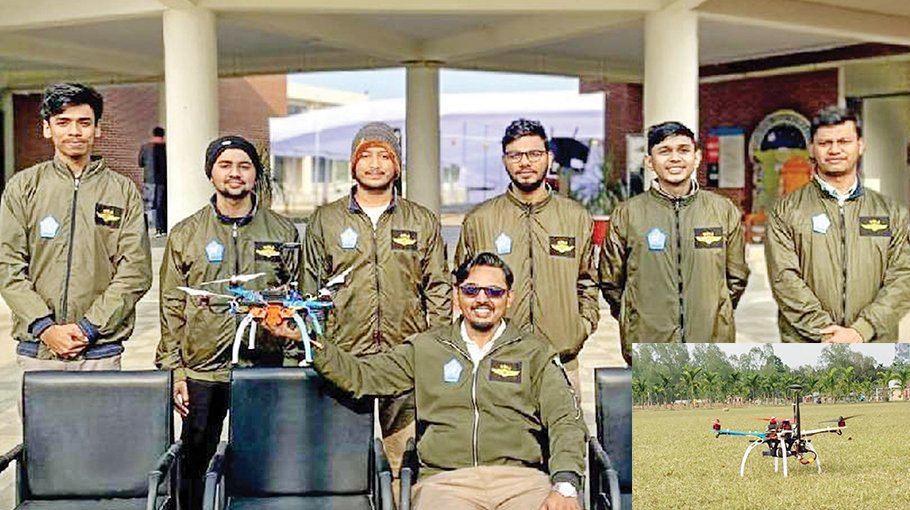Young innovators unveil Bangla voice command drone

A group of young innovators has revealed a groundbreaking achievement: a drone capable of understanding commands in Bengali. Dubbed 'Acharya', this drone integrates artificial intelligence to respond to voice commands in the Bengali language. The team behind this pioneering creation hails it as the world's first of its kind.
Led by SM Ishtiaq Ibn Salam, a lecturer at Bangabandhu Sheikh Mujibur Rahman Aviation and Aerospace University in Lalmonirhat, the project involves nine other students from various years at the university. Together, they created a team named the 'RPAS Taskforce'.
The other members are: Borhan Uddin, Shahadat Hussain Saikat, Maruf Raihan, Holijit Pal, Khalid Saifullah, Jhalak Banerjee, Himel Ishaq, Tasdid Tahsin, and Saiful Islam Roni.
The Acharya drone operates through a sophisticated artificial intelligence-driven pilot system which processes natural language commands in Bengali. Developed by the RPAS Taskforce, this system, once installed, can adapt to control various types of drones, enabling them to respond to Bengali voice commands.
Speaking to the media, team leader SM Ishtiaq Ibn Salam emphasised the democratising aspect of their invention. He expressed that the primary aim was to make drone technology accessible to Bengali speakers, eliminating the need for proficiency in foreign languages like English to operate drones.
Explaining the choice of name, 'Acharya', Ishtiaq Ibn Salam highlighted its meaning, which signifies scholarship. He asserted that the drone embodies advanced technology, deserving the name Acharya or Pandit.
Addressing the development process, Ishtiaq revealed the challenges faced, including sourcing parts from different countries and overcoming initial crashes. Despite the hurdles, the total expenditure amounted to approximately Tk 50,000. However, he reassured that commercial production would significantly reduce costs.
Regarding marketing plans, Ishtiaq mentioned receiving inquiries for orders and expressed readiness to fulfil demand.
Additionally, he outlined a proposition for individuals or companies interested in integrating Bengali command systems into existing drones, offering them at a nominal price. Looking ahead, Ishtiaq highlighted the potential for cost-effective mass production, leveraging Bangladesh's skilled labour market to compete favourably against foreign counterparts.



